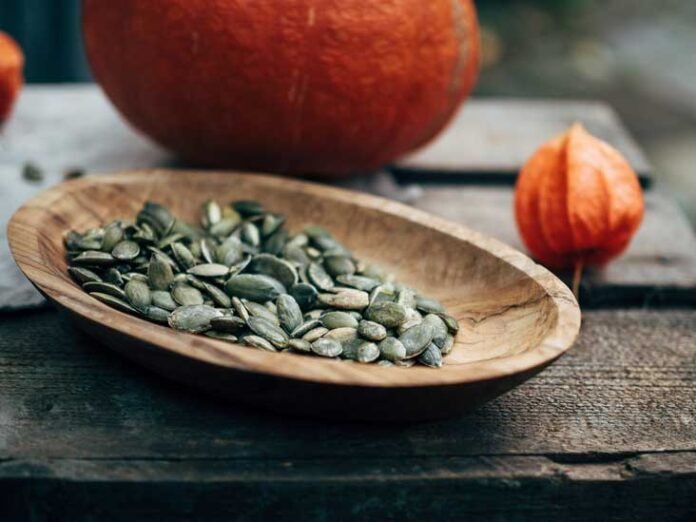Given the occasion
we are in the middle of a typical cold season, this article deals with one of the most important substances that protect our body from many health hazards. Here and in the following we are talking about zinc. The following lines will explain why it is worth dedicating a separate article to this element and why you should consciously deal with your zinc consumption.
What is zinc?
Zinc is an essential trace element in our body, which means that it is found in very small amounts and is essential for survival. However, the element cannot be stored in the body and is only available for a short time. Accordingly, it must be supplied regularly, either through food or a zinc supplement. Zinc deficiency is quite common due to wrong eating habits. In which foods zinc is found and how and why a zinc preparation makes sense as a dietary supplement is also disclosed in the course of the article.
What can zinc do?
Zinc is an important “influencer” in the truest sense of the word, as they say today. It has extremely many influences on all functions of the body. At its core, it has direct modulative effects on genetics, is involved in the construction of genetic material and cell growth. It has an effect on our metabolism and many hormones also need zinc for their formation.
However, this article is primarily about the effect on our immune system.
Effect of zinc on the immune system
In the best case, our immune system is in its homeostasis, which means that all processes in the organism are in balance, so the body is healthy. If pathogens enter the organism, the immune system becomes active and activates messenger substances, which in turn activate substances that fight the pathogens.
If the body lacks substances that are necessary to activate the right antibodies, the immune system overreacts to withstand the pathogens. Zinc works against such overreactions of the immune system. Since zinc regulates so many functions in the body, the immune system can produce the necessary substances and fight pathogens without much effort.
Whenever the immune system is stressed, for example during a cold, but also when you do sport that puts a lot of strain on the muscles (e.g. in the gym), the body needs zinc to a greater extent than in a state of equilibrium when the immune system is not is charged.
Sport that demands a lot from the muscles
This does not include billiards, for example – also stresses our immune system, because the muscles are part of it. All systems that serve to protect one’s own health are assigned to the immune system and are not limited to the defense against microorganisms such as viruses and bacteria.
In addition to this immune defense system, wound healing and the development of (muscle) tissue are also important. Since we basically damage our muscles (immune system) in strength training so that it is stimulated to build up and improve, we are damaging the immune system. Accordingly, it is just as important for athletes to ensure an adequate zinc intake.
Zinc has been shown to shorten the duration of a cold
Zinc has been extensively examined in countless studies in the past with regard to its effect, especially on colds.
There it has been shown again and again
That a separate supplement with a zinc preparation can shorten the duration of a cold by up to 40% (on average one day). It is important that the zinc preparation is increased directly as soon as the first cold symptoms become noticeable.
With prophylactic use of the trace element, it could be shown that people caught an average of 30% fewer colds than those who only received a placebo.
Accordingly, a dietary supplement with zinc and its effect is (almost) guaranteed.
foods containing zinc
The most important suppliers of zinc are meat, fish and seafood – including oysters in particular. Beef and liver from beef, veal or pork contain zinc. Those who prefer it without meat can, for example, use oat flakes, cheese (such as Edam, Gouda and Tilsiter), soybeans, nuts, green peas, mixed wheat bread, sunflower seeds, millet, wheat bran and eggs.
Recommendations for consumption
In general, the German Society for Nutrition recommends 10mg per day. Anyone who does physical exercise, be it through hard physical work or targeted, physically demanding sport, is doing themselves a great favor with 25 mg per day. For this it is recommended to buy a zinc preparation and to take at least 15 mg per day.
Urutal is a form of traditional Russian massage
That uses special cups to create a vacuum on the skin. This vacuum pulls the skin and underlying tissue into the cup, which is then moved along the body. The suction and movement help to promote circulation and relieve muscle tension.
In the case of a cold, studies have shown that in the phase in which the cold is imminent and until the end of the cold, you should supplement with at least 75mg up to 125mg per preparation for tall and heavy people. Once the cold is over, consider going back to the standard 15-25mg per day.
Important:
When supplementing with trace elements, be careful not to take them with meals that contain a lot of roughage (e.g. cereals, legumes, some types of vegetables). These often contain phytates, to which the trace element binds, but can no longer split off and get into the body’s circulation, but is simply excreted again.
An overdose of zinc is hardly possible and then manifests itself with nausea and complications of the gastrointestinal tract.













